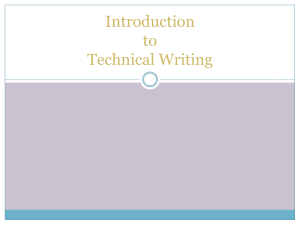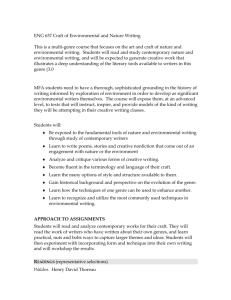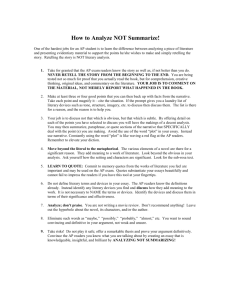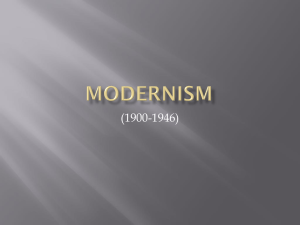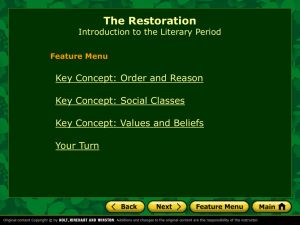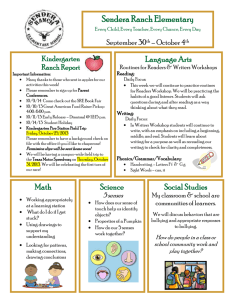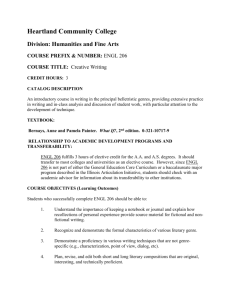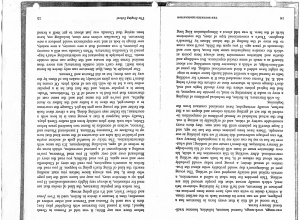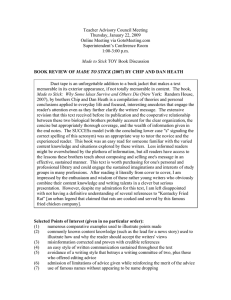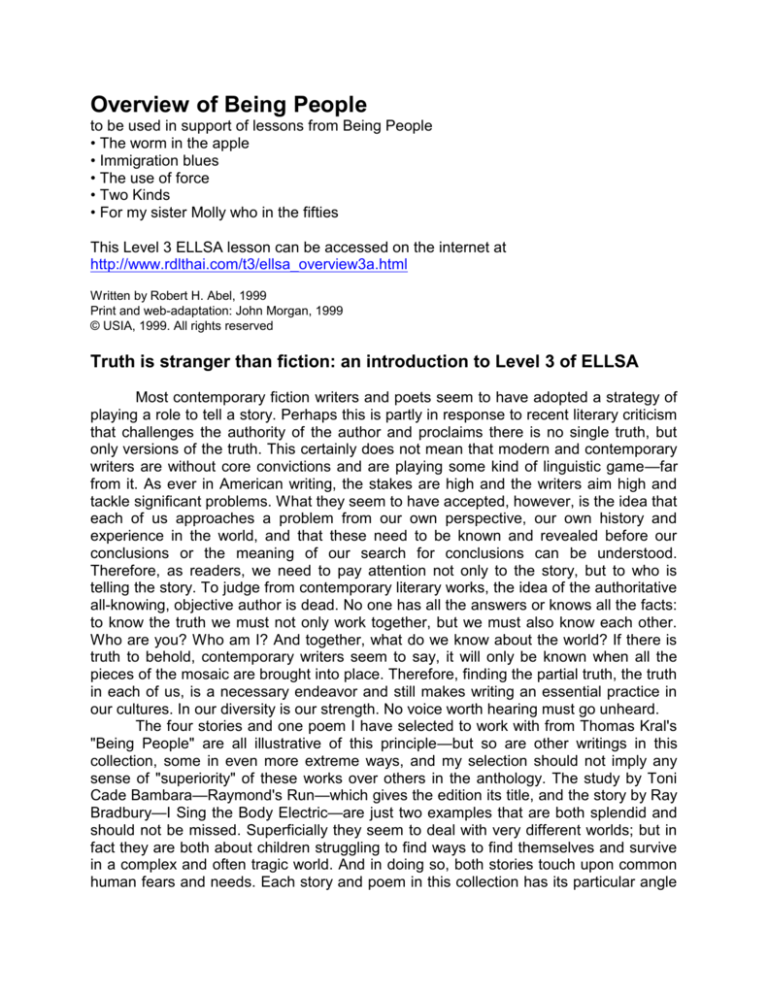
Overview of Being People
to be used in support of lessons from Being People
• The worm in the apple
• Immigration blues
• The use of force
• Two Kinds
• For my sister Molly who in the fifties
This Level 3 ELLSA lesson can be accessed on the internet at
http://www.rdlthai.com/t3/ellsa_overview3a.html
Written by Robert H. Abel, 1999
Print and web-adaptation: John Morgan, 1999
© USIA, 1999. All rights reserved
Truth is stranger than fiction: an introduction to Level 3 of ELLSA
Most contemporary fiction writers and poets seem to have adopted a strategy of
playing a role to tell a story. Perhaps this is partly in response to recent literary criticism
that challenges the authority of the author and proclaims there is no single truth, but
only versions of the truth. This certainly does not mean that modern and contemporary
writers are without core convictions and are playing some kind of linguistic game—far
from it. As ever in American writing, the stakes are high and the writers aim high and
tackle significant problems. What they seem to have accepted, however, is the idea that
each of us approaches a problem from our own perspective, our own history and
experience in the world, and that these need to be known and revealed before our
conclusions or the meaning of our search for conclusions can be understood.
Therefore, as readers, we need to pay attention not only to the story, but to who is
telling the story. To judge from contemporary literary works, the idea of the authoritative
all-knowing, objective author is dead. No one has all the answers or knows all the facts:
to know the truth we must not only work together, but we must also know each other.
Who are you? Who am I? And together, what do we know about the world? If there is
truth to behold, contemporary writers seem to say, it will only be known when all the
pieces of the mosaic are brought into place. Therefore, finding the partial truth, the truth
in each of us, is a necessary endeavor and still makes writing an essential practice in
our cultures. In our diversity is our strength. No voice worth hearing must go unheard.
The four stories and one poem I have selected to work with from Thomas Kral's
"Being People" are all illustrative of this principle—but so are other writings in this
collection, some in even more extreme ways, and my selection should not imply any
sense of "superiority" of these works over others in the anthology. The study by Toni
Cade Bambara—Raymond's Run—which gives the edition its title, and the story by Ray
Bradbury—I Sing the Body Electric—are just two examples that are both splendid and
should not be missed. Superficially they seem to deal with very different worlds; but in
fact they are both about children struggling to find ways to find themselves and survive
in a complex and often tragic world. And in doing so, both stories touch upon common
human fears and needs. Each story and poem in this collection has its particular angle
of vision, and its particular special insight, but I don't believe readers will find these
insights idiosyncratic, lurid or false. If anything, the collection stands as a firm rebuttal to
the idea that modern literature drowns in its own ambiguities and has nothing essential
to say to us. Reading these stories and poems should in fact, prove immensely
rewarding.
For readers coming to this literature with English as a second language, there
are some special problems, I feel. I think it helps to know a little about the writers
themselves, and their particular concerns or "angle of vision". This helps to provide
some context and clues about what to look for. Secondly, even sophisticated readers
and speakers of English as a second or foreign language have some difficulty with
idiomatic or colloquial English. Thomas Kral has done a good job of identifying much of
this material and I have tried to follow in his footsteps and supplement his list of
idiomatic words and phrases with others that I also feel need to be identified. Finally,
because we all come from different countries with different social and literary traditions,
I have tried to provide some information on background cultural context to the stories
and poems. Sometimes it helps to know the political or social context of a particular
work; in other cases, it may help to know how the writer is adapting or reacting against
traditional literary forms or techniques. Please don't think, however, that I am
pretending to explain everything about these stories. Readers with a different "angle of
vision" than mine will certainly have insights of their own on the value of these stories
and what they may mean, and from which I am sure I could learn much. And some of
these works are excellent enough as works of art and human statements that they will
prove intriguing and mysterious for a long time to come. We can only admire the people
who have studied English with so much diligence that they are now ready for the
challenges of modern American literature. To such people we owe whatever help we
can give, because in your responses we will learn something about you, something
about ourselves, and moreover, something important about just being people.


